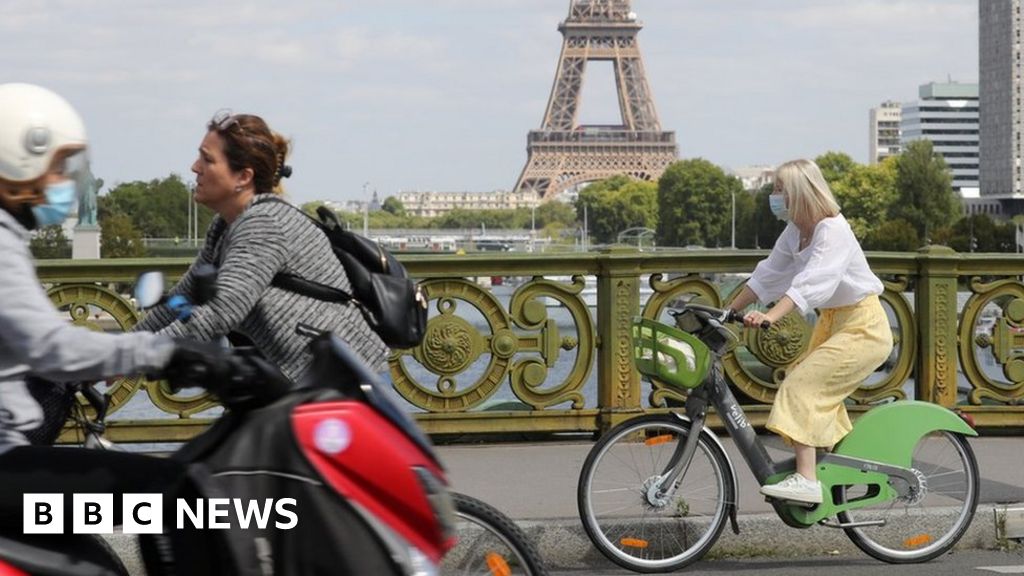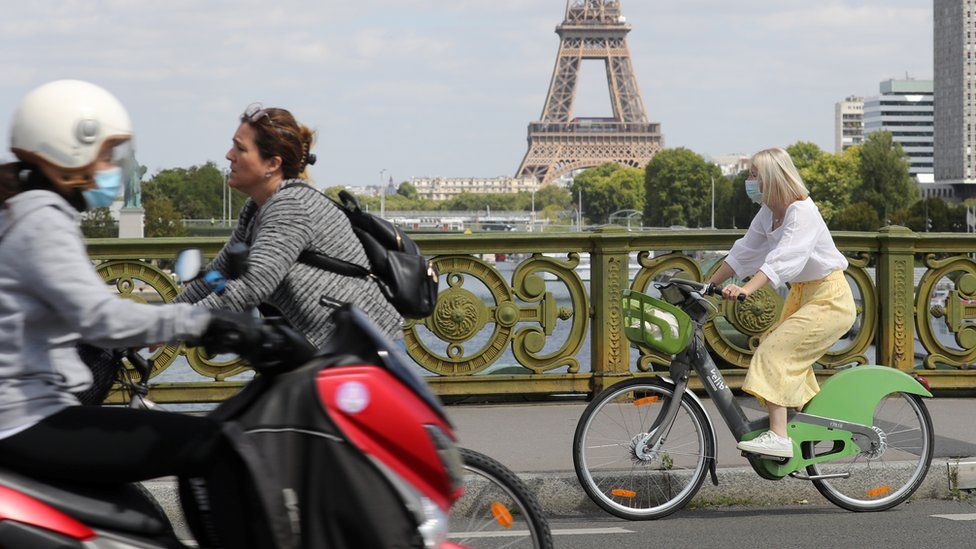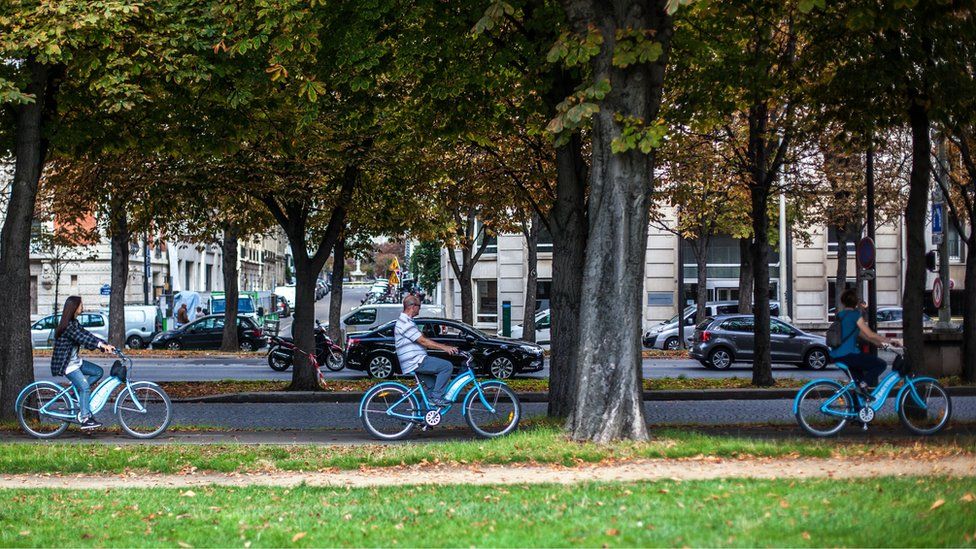Wishful thinking. Their penny has already dropped, knowing what a car does for them. Keeps them warm when it's cold, dry when it's wet. Carries all their groceries and other bulky shopping, plus recycling to the council depot. Takes the kids to and from school, college, gyms and sports fields. Carries immediate family, other relatives and friends on essential journeys and leisure trips. Keeps all of them them much safer and protected in any collision.
We've built a car culture and trying to undo that is proving nigh on impossible, as London has shown. We have a congestion charge and ultra low emision zone charges making car driving horribly expensive. We've spent countless millions on cycling facilities and regular cycling has enormously increased. But it's still under 5% of the population, and as the GLC ruefully comment, three-quarters of them fit young men, so not exactly getting drivers out of cars.
After all those changes and expense, the real winner hasn't been cycling, it's been public transport. Our bus fleet for example has doubled from 4,500 to over 9,000. East London now has the automated Docklands Light Railway. South London now has a tram network and Crossrail has opened. Surface rail now has some longer platforms and new longer trains to suit
That's all good of course, much better than rush hour roads choked with cars, but it hasn't got rid of any cars, just some of their commuting usage.
.
Build it and they will come:
Governments have invested millions on cycling during the pandemic. Here's what's changed.
www.bbc.com
That was getting on for two years ago, Paris has not gone back and it has a huge number of people getting about by bike now, in a city that was not that different in terms of car use to London.
The trouble is in the UK, there are too many people in positions of power with a similar mindset, who cannot see cycling as a serious mode of mass transport. While this continues, uptake of cycling will be held back.
Millions have been spent on infrastructure in the UK, but it has been badly done in most cases. Money has often been wasted on schemes that are sub standard, or just haven't been thought out properly. Little of this infrastructure conforms to the government's own LTN/120 standard. Often it is a shared pedestrian path, simple paint on the road, sends cyclists way off the beaten track through dodgy neighbourhoods, or just stops and vanishes at a critical location. In addition they are not maintained or gritted in winter. Hence they do not get used. Cyclists feel they have to continue using dangerous roads and more vulnerable groups are put off cycling because of the state of things. This means that numbers of people on bikes do not increase as they should in most cases.
Anyway, although a few million have been spent on cycle infra recently in the UK, it completely pales into insignificance compared to what is spent in this country on car infra. A single relatively simple junction/roundabout can cost hundreds of millions and car infra in total costs many billions every year - all paid for by general taxation, whether you own a car or not. Road infrastructure costs every adult in the UK something like £2000 a year in taxation. A negligible proportion of this is spent on cycle infra.
The Dutch have shown when there is the right mindset what can be achieved - and please don't say about the Netherlands not modernising as fast after the war again, so it was easier for them - it's not true. Look at any footage from the 70s and you will see Amsterdam and most town centres full of cars. No, it involved a huge public battle there in the 70s to start introducing cycling infrastructure, to develop it and keep perfecting it, by continuing to invest significant sums of money. It wasn't until well into the 80s that progress was made. The result is better health, less pollution, less congestion in cities and a thriving economy.

www.centreforpublicimpact.org
The French have introduced cycling infra to Paris and this shows what can be done and the impact it can have in a very short space of time when the will is there to implement the obvious - from lessons already learned by others.
As for what can be transported by bike:

This is an example by the London cycle delivery company PedalMeApp, posted today. They have a range of cargo bikes and trailers and transport all sorts of stuff across the capital. Cargo bikes are starting to be used by plumbers and electricians in London as they are far cheaper and more efficient than running a van on congested roads.
Sales of cargo bikes in the UK are increasing rapidly as people begin to realise they are far better for doing the school run than having a second car. Some people have even found with cargo bikes they can go completely car free.
Not everyone owns a car in the UK. In some places, nearly 50% of homes do not have a car. The number of young people taking driving tests continues to fall.
I am not anti-car, I own several myself, but it's horses for courses and in built up areas, in most cases, bikes are best. With the rising cost of living and rising fuel prices, an ever greater number of people will be forced to get rid of their cars.
Wales implementing a default 20 mph speed limit on roads not designated as higher speed is only the implementation of what the whole of the UK has signed up to - the UN Stockholm declaration:
Today, 17 May 2021, marks the start of the 6th UN Global Road Safety Week, highlighting the benefits of low-speed streets in urban areas

www.who.int
Unless it can be shown to be safe to travel over 30 kph (approx 20 mph) in built up areas, then the default speed should be 30 kph (or 20 mph).
This is all explained here:
We support those communities that want 20mph where people are

www.20splenty.org
Even if drivers do break the limit, average speeds are reduced and every mph less means a significant reduction in harm if a collision occurs due to the energy of the moving vehicle being proportional to the square of the speed.
So Wales is only doing what will be inevitable eventually in the rest of the UK.














